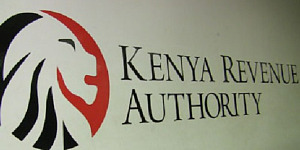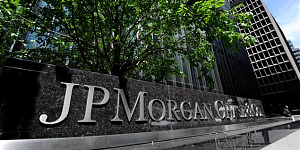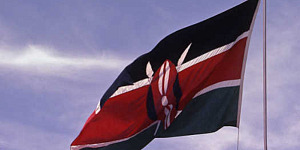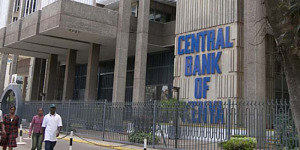The Central Bank of Kenya (CBK) through its top policy-making organ-the Monetary Policy Committee (MPC) has retained the benchmark policy rate at 7% for the ninth consecutive time.
At its meeting on Wednesday, July 28th, 2021, CBK think-tank said inflation pressures are expected to be elevated in the near term mainly driven by increases in food and fuel prices, and the impact of the recently implemented tax measures.
However, the Committee says inflation is expected to remain within the target range with muted demand pressures.
CBK top policy organ meets amid uncertainty over COVID-19 pandemic
The CBK’s Monetary Policy Committee (MPC) met on July 28, 2021, against a backdrop of the continuing global COVID-19 (coronavirus) pandemic, the continued rollout of vaccination programmes, and other measures taken by authorities around the world to contain its spread and impact.
The MPC considered the implications and outcomes of the measures implemented to mitigate the adverse economic effects and financial disruptions from the pandemic.
Overall, CBK said inflation stood at 6.3% in June compared to 5.9% in May, largely due to increases in food and fuel prices.
Food inflation increased to 8.5% from 7.0%, mainly on account of higher prices of some food items such as cooking oil, beef with bones, white bread, and wheat flour.
This is attributed to price increases for imported inputs and supply constraints. Fuel inflation remained elevated at 13.5% in June and 14.3% in May, mainly reflecting the impact of the rise in international oil prices on energy prices.
The Committee observes that leading indicators for the Kenyan economy point to a relatively strong GDP recovery in the first half of 2021, mainly supported by a strong performance of construction, information and communication, education, and real estate sectors.
CBK expects the economy to rebound in 2021, supported by the continued reopening of the services sectors including education, recovery in manufacturing, and stronger global demand.
The MPC’s Private Sector Market Perceptions Survey, CEOs Survey, and the Survey of Hotels reveals general optimism about economic growth prospects for 2021. Respondents attributed this optimism to the continuing vaccinations and easing of COVID-19 containment measures.
Additionally, respondents were optimistic about the expected implementation of measures in the FY2021/22 Budget, including the economic stimulus programme and the continued investment in infrastructure. However, respondents were concerned about continued uncertainties over the pandemic, increased taxes and heightened political activity.
The Survey of Hotels indicated continued recovery from the decline witnessed in April, particularly with regard to forward bookings.
CBK says exports of goods have remained strong, growing by 11.1% in the first half of 2021 compared to a similar period in 2020.
Receipts from exports of horticulture and manufactured goods rose by 29.4% and 45.2%, respectively, in the first half of 2021 compared to a similar period in 2020.
However, receipts from tea exports declined by 5.5%, partly due to the impact of accelerated purchases in 2020. Imports of goods increased by 21.9% in the first half of 2021 compared to a similar period in 2020, mainly reflecting increases in imports of oil and other intermediate goods.
Travel and transport receipts continued to recover in 2021 with the resumption of international travel.
Remittances were robust at US$305.9 million in June 2021, and were 20.4% higher in the first half of 2021 compared to a similar period in 2020.
The CBK foreign exchange reserves, which currently stand at US$9,350 Million (5.72 months of import cover), continue to provide adequate cover and a buffer against short-term shocks in the foreign exchange market.
The banking sector remains stable and resilient, with strong liquidity and capital adequacy ratios. The ratio of gross non-performing loans (NPLs) to gross loans stood at 14.0% in June compared to 14.2% in April 2021.
Repayments and loan recoveries were noted in the manufacturing, agriculture, trade and real estate sectors. Leveraging on accelerated digitalisation, the MPC notes that banks have continued to roll out innovative products targeting underserved segments including women, youth and Micro, Small and Medium Size Enterprises (MSMEs).
The number of loan applications picked up in June, reflecting improved demand with increased economic activities. Progress was noted with regard to lending under the Credit Guarantee Scheme that was operationalised in October 2020.
The Committee noted the improved revenue performance in FY2020/21 and a provisional fiscal deficit of 7.8% of GDP. Additionally, the rollout of the FY2021/22 Budget was noted, including the Economic Recovery Strategy which is expected to support domestic demand.
The MPC reiterated that implementation of the reforms outlined in the White Paper published on July 27, 2021, would enhance the effectiveness of the monetary policy, and support anchoring of inflation expectations. These reforms will focus on: refining macroeconomic modelling and forecasting frameworks in line with changing structure of the economy, improving the functioning of the interbank market in order to strengthen monetary policy transmission and operations, and continued improvement of communication on monetary policy decisions.
The Committee will meet again in September 2021, but remains ready to re-convene earlier if necessary,” said Dr Patrick Njoroge, Chairman of the Monetary Policy Committee and CBK Governor.







































